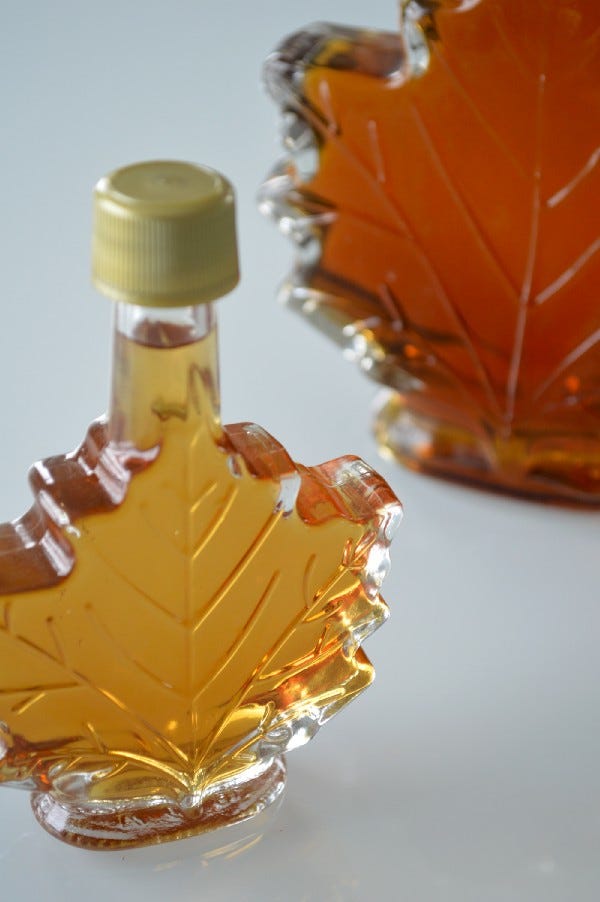Maple Syrup, Not Just About Pancakes
Living in New England, it is hard not to know something about Maple syrup. Produced in the Northeastern states and southern Canada, this…

Living in New England, it is hard not to know something about Maple syrup. Produced wherever Maple trees are found, especially in the Northeastern states and southern Canada, this sweet liquid has a history of delivering sweetness and flavor to life back to pre-Colonial days.
Today, it is not only a well-established industry, Maple is the state flavor in Vermont, one of the centers of Maple syrup production.
A quick online search for Maple flavored products in Vermont will lead you to everything from coffee, to spreadable cream and, of course, the maple sugar forms endemic in New England. Every child knows about the pure solid beige colored candy shaped like leaves, acorns, snowflakes and other forms common to New England.
When one thinks of Maple syrup, thoughts can run through your head that include blown diets, syrup covered pancakes and lots of sugar, but the Vermont Maple Syrup growers explain there is a lot more to the substance, including nutritional values.
For instance, unlike granulated sugars brown and white, the syrup is rich in antioxidants as well as manganese. Yet, it is only 2 calories more per teaspoon than granulated sugar. Some might say, “When was the last time you put a teaspoon of maple syrup on anything?” It was when I ate a banana for breakfast today.
The National Institutes of Health explains that a diet with the proper amounts of manganese helps the body in regulation of the vascular system. Anti-oxidants help control free radicals — electrons released in the body when molecules naturally break down during digestion. Some believe that this process leads these bits to cause damage to various cells while anti-oxidants decrease their movement.
Vermont is the home of products ranging from cheese to ice cream to teddy bears, but maple syrup is, according to the Vermont Maple Festival, the first agricultural product of the year there. Usually held in April in St. Albans (but canceled this year because of the corona virus), the annual celebration of this staple of the Green Mountain State boasts a pancake breakfast (of course) sugar house tours, various maple syrup, cultural exhibitions and annual competitions for prize money and for scholarships for local students.
The top prize is to the winners of the Maple Ambassador Competition who receive two thousand dollars each (there are two) paid in three installments over the year. The application indicates that one does not have to work in the Maple Syrup industry to win, but must have a good knowledge of it, be a resident of Vermont, unmarried and between the ages of sixteen and twenty-one.
During the interview, the judges will be asking you questions about the process of sugaring and seeking your ideas on the future of the maple industry in Vermont. Judges will be observing your appearance, poise and speech delivery. Reads the application text.
Successfully accepted entries require a letter of recommendation by a local (Vermont) sugar maker.
Maple syrup is a serious industry in the Americas, especially in New England where anyone will tell you it is about more than pancakes. You can celebrate it especially around December 17, for that is Maple Syrup Day.


